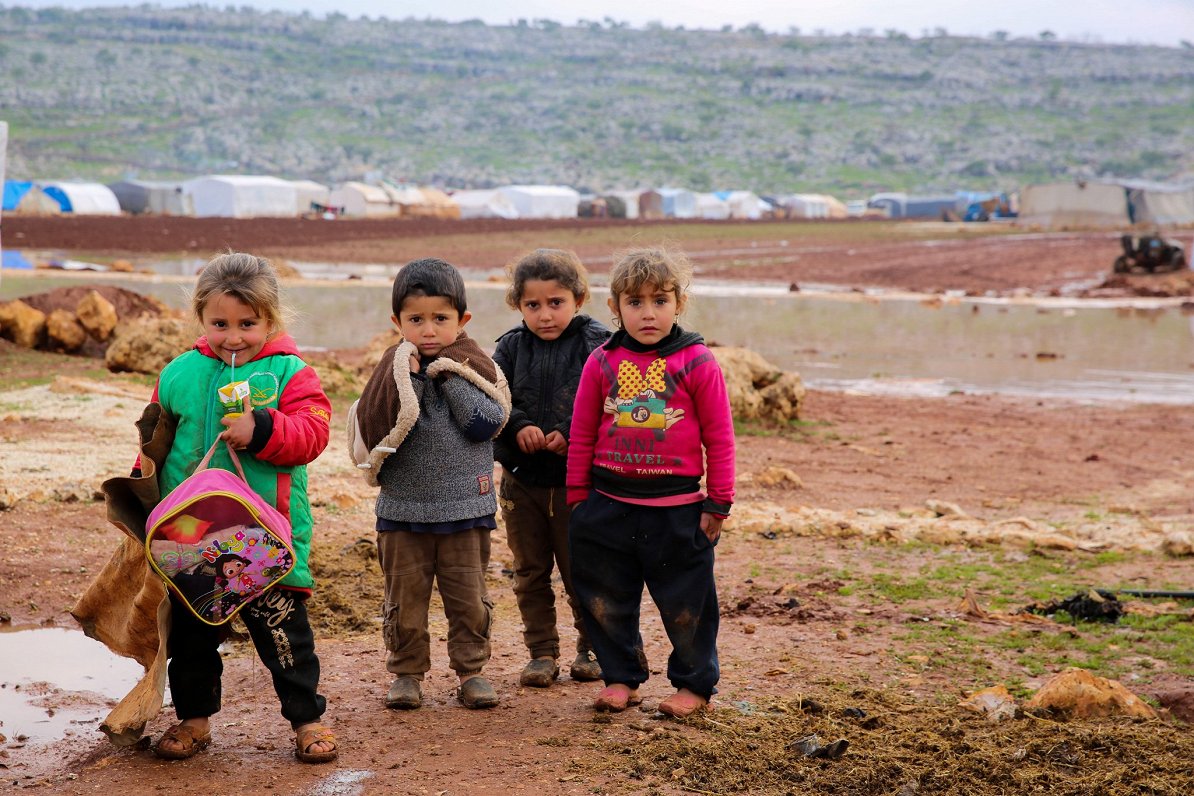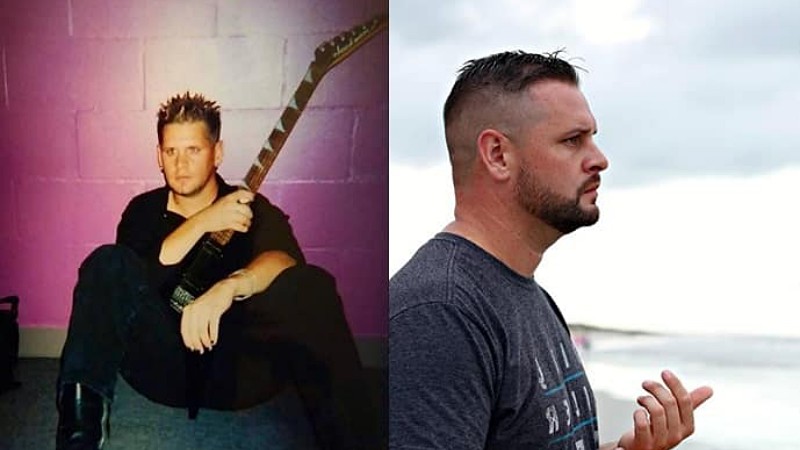Syria and its capital, Damascus, have been the pearl of the Middle East for centuries, but ten years after the start of the Syrian armed conflict, the balance of war is terrible: 90% of Syrians live in poverty, half of the country’s population has fled, hundreds of thousands have died. “There are no winners in this situation,” said Syrian journalist Rima Dava, who has taken refuge in Germany, in a conversation with Latvian Television.
Rima was already a refugee in 2012. “I used to live in central Syria, in Salami. It is located between two major cities, Homs and Hamm. It was controlled by the Islamic State for some time, but is now under the control of the Syrian regime, which means that it is relatively safe there. The city is not bombed, ”says Rima about her homeland.
“But everyday life is very difficult. It is also linked to the Covid outbreak, a devastated healthcare system. The same is true across the country, not just in my city. I think that a famine will soon break out in Syria.
When I read about the situation in Syria or contact those who remain there, I am angry. This is not acceptable. In Syria, it is almost impossible to buy even everyday things, such as goods for children. ”
Nine people in one room
Life was fierce during the war, but even now the economic situation is devastating. 90 percent of Syrians live in absolute poverty. The Syrian pound is at its lowest level against the US dollar. There is a lack of food and fuel in the country, and in some places electricity is only available for a few hours a day.
“Before the conflict, 22 million people lived in Syria. There are now just over 13 million left, but most live in harsh conditions. There is a lack of food and other basic necessities.
Especially recently, when the value of the Syrian pound has fallen sharply. Food prices are very high. People have to rely on humanitarian aid, but it is not always possible to receive it, ”says Rima.
“Assad now controls about two-thirds of the country, but there are several other groups in northern Syria. For example, those under the almost complete control of Turkey. To the west of the country is Idliba, which remains the last opposition fortress.
Idlib is not only inhabited by opposition forces, but also by groups that are considered terrorists. As a result, the city is regularly bombed by both Assad’s forces and their allies from Russia. At the same time, millions of refugees live here in specially designed camps. More than five and a half million people have fled Syria and about six million have migrated internally due to the conflict. “
“I live in the same room with my children, my daughter also has two children. We are nine people in one room. It’s hard, ”says local resident Kasaya al Katiba. “I do not know where this life takes us. Where will we go? Where are we going? Will we ever return home, or will everything stay that way? ”
Frost in the Arab spring
The Syrian conflict began 10 years ago, when the “Arab Spring” intensified protests in Syria against the regime of Bashar al-Assad. The ruling forces violently suppressed the protests, and a civil war broke out, destroying the lives of millions of people.
At the beginning of the conflict, it was indeed a civil war: Assad’s forces against the opposition (the Free Syrian Army), which brought together fugitives from the state army, as well as simply civilians who took up arms. However, the civil war soon escalated into an international conflict with new members: Turkey, Russia, the United States, Britain, France, Saudi Arabia and Qatar.
Americans and Turks began to support the opposition, but allies appeared to the Syrian president. Russian military aircraft soon appeared in Syrian airspace, while Iranian military forces assisted Syrian government forces on the ground. The situation was further complicated by the involvement of other actors in the conflict, non-state combatant groups, which were seen as enemies by both sides. The “Islamic State”, the Al-Nusra front, and other groups used the chaotic situation to gain territory and control.
And then the Syrian Kurdish fighters joined the conflict, uniting with local Arabs to fight the “Islamic State” and gain territory for themselves. Turkey, on the other hand, considers the Kurds to be terrorists and did not want to allow their activities at its southern border, so it started fighting the group.
Hunger and war crimes
There are also hundreds of American troops in the Syrian Kurdish region, mostly guarding oil fields. At the same time, groups such as Hezbollah, supported by Iran, are wandering around the country. Today, however, terrorist groups seem to have been driven out of Syria after a long struggle on all sides.
In the middle of all these struggles were Syrian civilians who did not want a conflict at all. They have suffered particularly badly in this war. Their homes were bombed, there were also attacks with chemical weapons, blockades and famine in many places. Many were detained and tortured. Hundreds of human rights violations have been identified in Syria. Refugees who arrived in Europe reported experiencing war crimes, but the perpetrators are rarely brought to justice.
“People were injured and killed in every possible way, and their bodies were desecrated. Syrians have been imprisoned or abducted, lost, tortured, caged and redeemed or exchanged in exchange for prisoners, ”said Geir Pesenin, the United Nations Special Envoy to Syria.
No one has won
Over the years, there have been dozens of attempts to find a solution to the conflict, but to no avail. Last year, the UN announced the establishment of a Syrian Constitutional Committee, representing both regime and opposition forces. The aim is to seek political settlement and draft a new national framework law. So far, all this has failed.
“I see these ten years as the result of popular protests against the Assad regime. It should be recalled that the uprising was peaceful. They demanded the resignation of Assad. But this goal has still not been achieved. This was followed by posts. Hundreds of thousands of people have died, millions have lost their homes and become refugees. Consequently, I am by no means satisfied with what has happened in the last ten years. Especially because everything is still going on, ”says Rima Dava, a refugee living in Germany.
“I would not say that either side has won. Neither the ruling regime nor the opposition groups. Although the Syrian regime controls most of the country, that does not mean that they have won. The opposition has not won either. There are no winners in this situation. The Syrians are the ones who have paid for everything with their lives and housing. ”
Longing for the homeland
Rima is in regular contact with compatriots who have remained in their homeland. “They are in a situation where nothing can be done to improve their situation. They work all the time, but their income is low. I can’t say that everyone, but most, are planning to leave the country. But it’s complicated. It’s hard to get a visa. They are very eager to escape, because it is no longer sustainable, but at the same time it is almost impossible. ”
Rima says she longs for her homeland. She admits that the place that used to be called home has changed, which makes her sad. The journalist hopes to one day be able to return to Syria, but admits that this will not be possible while Assad is in power.
“We can divide the Syrians who have left the country into several groups. Most live in Turkey and neighboring countries such as Lebanon and Jordan. The situation there is terrible, as most refugees live in camps there. It is a little better in Turkey because part of it has a job. At the same time, it is difficult because there is another language, sometimes they face racism and other challenges.
In Europe, most live in Germany, including Sweden, the Netherlands and Belgium. Mostly in Western Europe. It’s hard to say if all but a large part is settled. I know that many are now trying to acquire citizenship, as it has been several years since they fled. It is now possible to apply for citizenship. A lot of people have really got used to it and got a job in their new home countries. ”
Most refugees are from Syria
The Syrian war also triggered the worst refugee crisis in recent years, which deepened in 2015, causing deep tensions in Europe, disputes and divisions over whether and how to take in refugees. The European Union even signed an agreement with Turkey, giving it money to help Turkey host and accommodate people fleeing its neighbors. Now the situation has changed significantly and the flow of people has decreased significantly.
According to the United Nations, the world is currently surrounded by war, conflict, persecution and other reasons. For 80 million people, that is 1% of the world’s population. And almost half (40%) of them are children.
Five countries now account for almost a fifth of all refugees, including Syria (6.6 million), Venezuela (3.7 million), Afghanistan (2.7 million), South Sudan (2.2 million) and Myanmar ( 1.1 million).
Most refugees live in developing countries, which are adjacent to war zones but which are not easy on their own. In the case of Syria, they are Lebanon and Turkey. But the United States, Peru, Germany, France and Spain have received the most asylum applications in recent years.
–

/data/photo/2019/03/01/3267640706.jpg)
